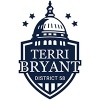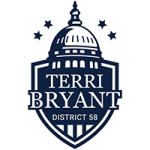Seeking to ensure that Illinoisans affected by the Energy Transition Act can access sufficient assistance, State Senator Terri Bryant (R-Murphysboro) has filed legislation that would expand training opportunities and broaden the demographics of trainees who can take part in the Clean Jobs Workforce Network Program.
“For generations, the coal industry has provided countless hard-working families in Southern Illinois with good-paying jobs and financial security,” said Sen. Bryant. “It is the duty of our state to ensure that we provide adequate assistance for the Illinoisans impacted by our transition away from coal.”
The newly filed Senate Bill 3759 would expand training programs, eligible trainees and improve demographic reporting of the Clean Jobs Workforce Network Program by:
- Defining “spouse” to include possible dislocated homemakers and significant others of coal miners who may have to enter the workforce for either income or relocation reasons;
- Adding Program Delivery Hub Sites to service Franklin and Washington Counties as they have the most employees impacted by the Energy Transition Act who don’t have a site;
- Adding broadband and fiber optic infrastructure to the outline of trainable sectors to build upon the state’s efforts to increase statewide broadband access through the Connect Illinois initiative; and
- Requiring the reporting of demographic data on potential trainees applying to the Program Delivery Hub Sites.
“These common-sense expansions to the Energy Transition Act will help ensure that Illinoisans aren’t left behind during our statewide transition,” said Sen. Bryant. “By creating additional training hubs, expanding eligibility for participants, and broadening the curriculum within these facilities we create more opportunities for the people of our state who currently face an uncertain future.”
The Energy Transition Act of 2021 created the Clean Jobs Workforce Network Program which was tasked with establishing thirteen Program Delivery Hub Sites throughout the state to provide reeducation and training for Black, Indigenous, People of Color (BIPOC), disadvantaged workers and displaced workers impacted by the state’s transition away from a carbon-based energy industry.
The Act established the Clean Jobs Curriculum to be utilized at the Hub Sites. The curriculum consists of training and education related to solar, wind, energy efficiency, energy storage, solar thermal, green hydrogen, geothermal, electric vehicles, renewable energy industries, emission reduction, and other related sectors.

